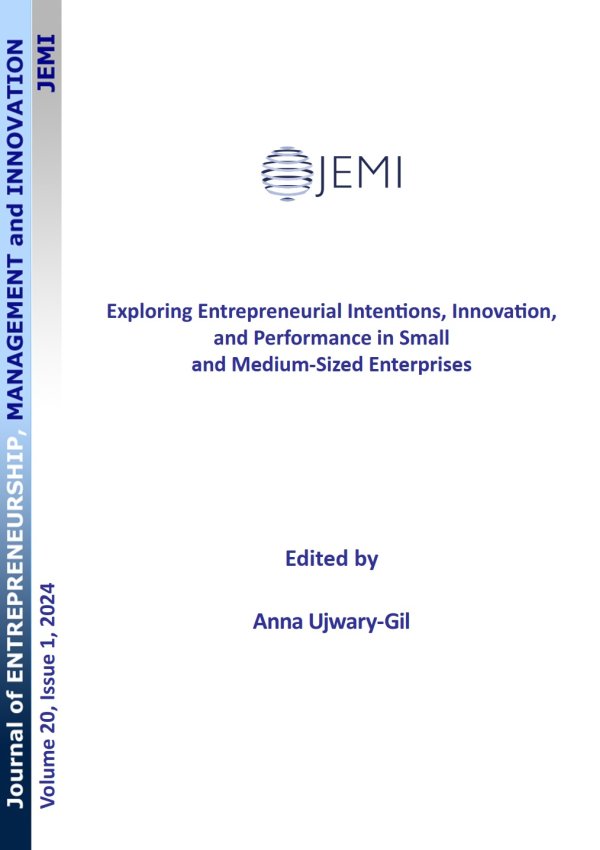Matúš Grežo, Mgr, Ph.D., Senior Researcher, Institution/Organization: Institute of Experimental Psychology of the Centre of Social and Psychological Sciences, Slovak Academy of Sciences, Dúbravská cesta 9, 841 04, Bratislava, Slovakia, e-mail: This email address is being protected from spambots. You need JavaScript enabled to view it. 
Róbert Hanák, Doc. Ing., Mgr., Ph.D., Senior Researcher, Institution/Organization: Department of Informational Management, Faculty of Business Management, University of Economics in Bratislava, Dolnozemská cesta 1, 852 35, Bratislava, Slovakia, e-mail: This email address is being protected from spambots. You need JavaScript enabled to view it. 
Abstract
PURPOSE: In both theory and practice, the entrepreneur’s prior experience is considered to be one of the most important human capital factors affecting venture performance. Nonetheless, the research on the effect of experience on venture performance has produced inconclusive findings. The literature explaining this inconclusiveness is sparse, but several determinants have been identified, such as the variability in the conceptualization and measurement of experience and performance, age of the investigated ventures, types of industry, or size and composition of venture management. The inconsistency of these features across primary studies makes it difficult to compare the results and to integrate findings. METHODOLOGY: This meta-analysis reviews and summarizes 80 primary studies in order to investigate the relationship between entrepreneur’s experience and venture performance. We investigated the effect of five determinants of this relationship, namely the type of experience, type of performance, venture age, size of managerial team, and composition of managerial team. A random effect model was applied and the correlation coefficient was used as an indicator of effect size. FINDINGS: The study found that experience positively affected venture performance, although the magnitude of the effect was rather small. Venture performance showed to have the strongest significant relationship with start-up experience, followed by industrial, working, and managerial experience. International, functional, and entrepreneurial experience had a non-significant effect on venture performance. Moreover, the effect of experience on venture performance was not significant for older ventures. Experience significantly affected two types of venture performance, namely the size of venture and profitability, while the effect on growth was non-significant. Finally, of all the types of venture management, the experience of owner-inclusive entrepreneurial teams had the greatest effect on venture performance. IMPLICATIONS: Investor practitioners may find it helpful to assess entrepreneurs’ experience within a broader context, taking account of the types of experience the entrepreneur possesses. Entrepreneurs’ international, functional, and entrepreneurial experience should be considered very carefully, as they had a non-significant effect on venture performance. In contrast, having experience of founding a venture or of a particular industry seems to provide more value than experience of doing business internationally, or being in business for many years. Another important aspect that investors and venture capitalists should take into account is the size and composition of the entrepreneurial team and the extent to which the venture proposal reflects the different types of experience the team members possess. ORIGINALITY AND VALUE: The study contributes to the human capital literature by firstly attempting to examine systematically the overall magnitude of the relationship between entrepreneur’s experience and venture performance. It also contributes by investigating the determinants of the relationship between experience and venture performance. It summarizes and combines previous inconclusive findings about the impact of different types of experience on different venture performance outcomes.
Keywords: entrepreneurial experience, venture performance, entrepreneurship, human capital, learning by doing, meta-analysis, start-up, investor decision-making, performance, knowledge generation






